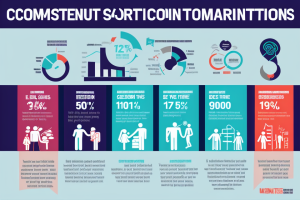
Are you a fan of fast-paced games? Do you often find yourself immersed in the excitement of high-speed action and quick thinking? If so, you might be curious about the potential benefits that these types of games can have on your brain. In this article, we’ll explore the idea that fast-paced games may actually be good for your brain, helping to improve cognitive function and increase reaction time. So, grab a controller and get ready to discover the surprising benefits of quick thinking games!
Understanding Quick Thinking Games
What are quick thinking games?
Quick thinking games refer to a specific category of video games that require players to make rapid decisions and react quickly to changing situations. These games often involve a high degree of cognitive challenge and may require players to utilize strategic thinking, problem-solving skills, and hand-eye coordination.
Definition and characteristics
Quick thinking games are typically characterized by their fast-paced nature, requiring players to think and act quickly in order to succeed. These games often involve real-time gameplay, where players must make split-second decisions in order to achieve their goals.
Examples of quick thinking games
Examples of quick thinking games include first-person shooters, racing games, and strategy games. These games may require players to engage in fast-paced combat, navigate complex environments, or manage resources and units in real-time. Other examples include puzzle games that require quick thinking and problem-solving skills, such as “Portal” or “The Witness”.
How do quick thinking games work?
Quick thinking games are designed to challenge the player’s cognitive abilities and reaction time. These games often involve solving puzzles, navigating through obstacles, and making split-second decisions.
Cognitive processes involved
- Attention: Quick thinking games require the player to focus on the task at hand, filtering out distractions and other stimuli.
- Perception: The player must be able to perceive the game environment and identify patterns, objects, and other relevant information.
- Memory: Memory is essential for recalling past actions and strategies, as well as retaining new information.
- Processing speed: The player must be able to process information quickly and make decisions within a limited time frame.
- Problem-solving: Quick thinking games often require the player to solve complex problems and think critically.
Skills improved through gameplay
- Reaction time: Quick thinking games can improve reaction time by requiring the player to respond quickly to changing situations.
- Attention and focus: The player must maintain attention and focus in order to succeed in the game.
- Decision-making: Quick thinking games can improve decision-making skills by requiring the player to make split-second decisions.
- Spatial awareness: Some quick thinking games require the player to navigate through virtual environments, improving spatial awareness.
- Multitasking: Quick thinking games often require the player to multitask, improving the ability to perform multiple tasks simultaneously.
The Benefits of Playing Quick Thinking Games
Enhanced cognitive abilities
Improved memory
Quick thinking games have been shown to improve memory function by challenging players to recall information and make connections between different pieces of data. These games require players to remember patterns, sequences, and rules, which can help build and strengthen memory pathways in the brain. Additionally, the mental stimulation provided by these games can improve working memory, which is the ability to temporarily store and manipulate information.
Increased attention and focus
Quick thinking games can also increase attention and focus by requiring players to remain alert and respond quickly to changing situations. These games often involve multiple stimuli, such as sounds, visuals, and movement, which can help improve the player’s ability to filter out distractions and maintain concentration. By training the brain to focus on relevant information, these games can enhance cognitive control and improve overall attention skills.
Better problem-solving skills
Finally, quick thinking games can enhance problem-solving skills by providing players with opportunities to practice and refine their decision-making abilities. These games often require players to think critically and creatively, using logic and reasoning to solve puzzles and overcome challenges. By practicing these skills, players can develop a more flexible and efficient approach to problem-solving, which can have a positive impact on cognitive function in other areas of life.
Emotional benefits
- Reduced stress and anxiety
- Improved mood and emotional well-being
- Increased self-esteem
Reduced stress and anxiety
Quick thinking games have been found to reduce stress and anxiety levels in individuals. Playing these games releases endorphins, which are natural mood enhancers that help to reduce stress and anxiety. The fast-paced nature of these games can help to distract individuals from their worries and allow them to focus on the present moment. Additionally, the challenge and excitement of playing these games can help to alleviate feelings of boredom and monotony, which can contribute to stress and anxiety.
Improved mood and emotional well-being
Playing quick thinking games has been shown to improve mood and emotional well-being. The challenge and excitement of these games can help to boost self-esteem and confidence, which can lead to a more positive outlook on life. Additionally, the social interaction and teamwork involved in many quick thinking games can help to foster a sense of belonging and connectedness, which can also contribute to improved mood and emotional well-being.
Increased self-esteem
Quick thinking games can also increase self-esteem and confidence. As individuals improve their skills and succeed in these games, they experience a sense of accomplishment and pride. This can help to boost self-esteem and increase motivation to continue playing and improving. Additionally, the challenge and competition involved in many quick thinking games can help to develop resilience and grit, which are important qualities for maintaining high self-esteem.
Social benefits
Quick thinking games offer numerous social benefits that go beyond enhancing cognitive abilities. By engaging in these games, individuals can develop and strengthen their communication skills, empathy, and relationships.
Enhanced communication skills
Playing fast-paced games that require quick thinking and decision-making can help individuals develop their communication skills. These games often involve working together as a team or negotiating with other players, which requires clear and concise communication. By regularly engaging in these activities, individuals can become more adept at expressing their thoughts and ideas effectively, both verbally and non-verbally.
Greater empathy and understanding
Quick thinking games can also foster greater empathy and understanding among players. These games often involve understanding the perspectives and motivations of other players, which can help individuals develop their emotional intelligence. By regularly engaging in these activities, individuals can become more adept at understanding and appreciating the viewpoints of others, which can enhance their ability to navigate social situations and build strong relationships.
Strengthened relationships
Finally, quick thinking games can help strengthen relationships among players. These games often involve working together as a team and relying on others to make quick decisions and solve problems. By regularly engaging in these activities, individuals can develop stronger bonds with their teammates and improve their ability to work together effectively. Additionally, these games can provide a fun and engaging way for individuals to spend time together and create shared memories.
Boosting academic and professional performance
- Improved learning outcomes
Quick thinking games have been shown to improve learning outcomes in various academic disciplines. Studies have demonstrated that students who regularly engage in fast-paced games exhibit better problem-solving skills, critical thinking abilities, and cognitive flexibility compared to their peers who do not play such games. These skills are highly relevant to academic performance and can contribute to improved grades and test scores.
- Increased productivity
In the professional world, quick thinking games can also increase productivity by enhancing cognitive abilities and decision-making skills. Research has shown that workers who regularly engage in fast-paced games exhibit greater efficiency and effectiveness in their work, making them more valuable assets to their organizations. Furthermore, these games can help employees develop the ability to think on their feet, adapt to changing situations, and make split-second decisions, all of which are critical to success in today’s fast-paced business environment.
- Enhanced decision-making skills
Quick thinking games have been shown to enhance decision-making skills, which are crucial in both academic and professional settings. By practicing fast-paced games, individuals can improve their ability to process information quickly, identify patterns, and make informed decisions. These skills are particularly important in situations where time is of the essence and the consequences of a wrong decision can be severe. Overall, playing quick thinking games can lead to improved academic and professional performance by enhancing cognitive abilities, increasing productivity, and developing decision-making skills.
Addressing Concerns and Misconceptions
Are quick thinking games addictive?
- Understanding the impact of game addiction
Game addiction, also known as gaming disorder, is a condition that has been recognized by the World Health Organization (WHO) as a mental health disorder. It is characterized by a persistent and recurrent pattern of behavior involving the use of digital or video games that leads to significant impairment or distress in an individual’s personal, social, or professional life.
Research has shown that individuals who develop an addiction to gaming may experience a range of negative consequences, including social isolation, decreased academic or work performance, and physical health problems such as eye strain and poor posture. In severe cases, game addiction can also lead to depression, anxiety, and other mental health issues.
- Strategies for responsible gaming
While fast-paced games can provide a range of cognitive benefits, it is important to engage in responsible gaming practices to avoid the potential risks associated with addiction. Here are some strategies that individuals can use to promote responsible gaming:
1. Set limits: Establish a schedule for gaming and stick to it. Set specific time limits for gaming sessions and take breaks between sessions to avoid overindulging.
2. Prioritize responsibilities: Ensure that gaming does not interfere with personal, social, or professional responsibilities. Set priorities and allocate time for gaming based on personal commitments and obligations.
3. Maintain a balanced lifestyle: Engage in a range of activities beyond gaming to promote a balanced lifestyle. This can include exercise, socializing with friends and family, pursuing hobbies, and engaging in other leisure activities.
4. Seek support: If gaming becomes problematic, seek support from friends, family, or mental health professionals. It is important to address any concerns related to gaming addiction as early as possible to prevent negative consequences.
Overall, while fast-paced games can offer cognitive benefits, it is important to engage in responsible gaming practices to avoid the potential risks associated with addiction. By setting limits, prioritizing responsibilities, maintaining a balanced lifestyle, and seeking support when needed, individuals can enjoy the benefits of fast-paced games while minimizing the potential negative consequences.
Can quick thinking games cause violence?
Examining the relationship between games and aggression
The relationship between video games and aggression has been a topic of debate for many years. While some studies suggest that violent video games can lead to aggressive behavior, others argue that there is little evidence to support this claim.
One study conducted by the American Psychological Association found that exposure to violent video games can increase aggressive thoughts, hostile feelings, and aggressive behavior in players. However, other studies have failed to replicate these findings, leading some researchers to question the validity of the correlation between video games and aggression.
Evidence supporting the claim
Despite the mixed findings, some studies have provided evidence to support the claim that quick thinking games can cause violence. For example, a study published in the Journal of Youth Studies found that playing violent video games was associated with increased aggression in young adults.
Another study conducted by the University of Ohio found that playing violent video games can lead to desensitization to violence, which in turn can lead to aggressive behavior. However, it is important to note that these studies are not conclusive and further research is needed to fully understand the relationship between video games and aggression.
In conclusion, while there is some evidence to suggest that quick thinking games can cause violence, the relationship between the two is complex and not fully understood. It is important to consider other factors, such as a person’s individual characteristics and environmental influences, when examining the potential impact of video games on aggression.
Can quick thinking games lead to social isolation?
- The potential for excessive gaming
- Prolonged hours spent gaming
- Neglecting personal relationships and responsibilities
- Physical and mental health consequences
- Strategies for maintaining a balanced gaming lifestyle
- Setting gaming boundaries
- Prioritizing face-to-face interactions
- Engaging in diverse hobbies and activities
Quick thinking games, often associated with fast-paced action and cognitive challenges, have become increasingly popular among gamers worldwide. While these games have been shown to offer various cognitive benefits, concerns regarding their potential impact on social isolation abound. This section aims to explore the potential for excessive gaming and provide strategies to maintain a balanced gaming lifestyle, ensuring that the benefits of quick thinking games are enjoyed without compromising personal relationships and overall well-being.
The potential for excessive gaming
Excessive gaming can lead to social isolation in several ways. Prolonged hours spent gaming may cause individuals to neglect their personal relationships and responsibilities, leading to a decline in social interactions and a reduction in their overall quality of life. This can result in a vicious cycle where individuals become more isolated, leading to increased gaming and further isolation.
In addition to the emotional and psychological consequences, excessive gaming can also have physical effects on the body. Prolonged periods of sitting, lack of exercise, and irregular sleep patterns can contribute to various health issues, such as obesity, poor vision, and sleep deprivation.
Strategies for maintaining a balanced gaming lifestyle
To avoid the potential pitfalls of excessive gaming, it is essential to develop strategies for maintaining a balanced gaming lifestyle.
1. Setting gaming boundaries
Establishing boundaries is crucial to prevent excessive gaming. Setting specific time limits for gaming sessions or designating specific days for gaming can help individuals maintain a healthy balance between gaming and other aspects of their lives.
2. Prioritizing face-to-face interactions
Engaging in face-to-face interactions with friends and family is vital for maintaining social connections. Scheduling regular meetups or participating in group activities outside of gaming can help individuals maintain their relationships while still enjoying the benefits of quick thinking games.
3. Engaging in diverse hobbies and activities
Developing interests and engaging in various hobbies and activities is essential for maintaining a well-rounded lifestyle. Individuals can explore different hobbies, such as sports, reading, or creative pursuits, to ensure they have a variety of interests and interactions beyond gaming.
By employing these strategies, individuals can enjoy the cognitive benefits of quick thinking games without succumbing to the potential pitfalls of excessive gaming, ensuring a balanced and fulfilling lifestyle.
FAQs
1. What are fast-paced games?
Fast-paced games are video games that require quick thinking and reaction times from the player. These games often involve intense action, racing, or puzzle-solving, and may have time limits or other challenges that encourage players to work quickly.
2. Can fast-paced games improve brain function?
Some research suggests that playing fast-paced games may have cognitive benefits, such as improving reaction times, visual-spatial skills, and problem-solving abilities. However, more research is needed to fully understand the extent of these benefits and how they may vary depending on the individual and the specific game being played.
3. How do fast-paced games affect the brain?
Fast-paced games may affect the brain by engaging the prefrontal cortex, which is involved in decision-making and planning, and the parietal lobe, which is responsible for processing sensory information. These games may also stimulate the release of dopamine, a neurotransmitter associated with pleasure and reward, which can help motivate players to keep playing and improving their skills.
4. What are some examples of fast-paced games?
Examples of fast-paced games include action games like “Call of Duty” or “Super Mario Bros.,” racing games like “Gran Turismo” or “Need for Speed,” and puzzle games like “Tetris” or “Candy Crush.”
5. Is it safe to play fast-paced games?
Playing fast-paced games is generally considered safe, but it’s important to take breaks and not overdo it, as playing for long periods of time without rest can lead to fatigue and strain on the eyes and hands. It’s also important to be mindful of the content and age-appropriateness of the games being played, as some games may contain violence or other content that is not suitable for all ages.





